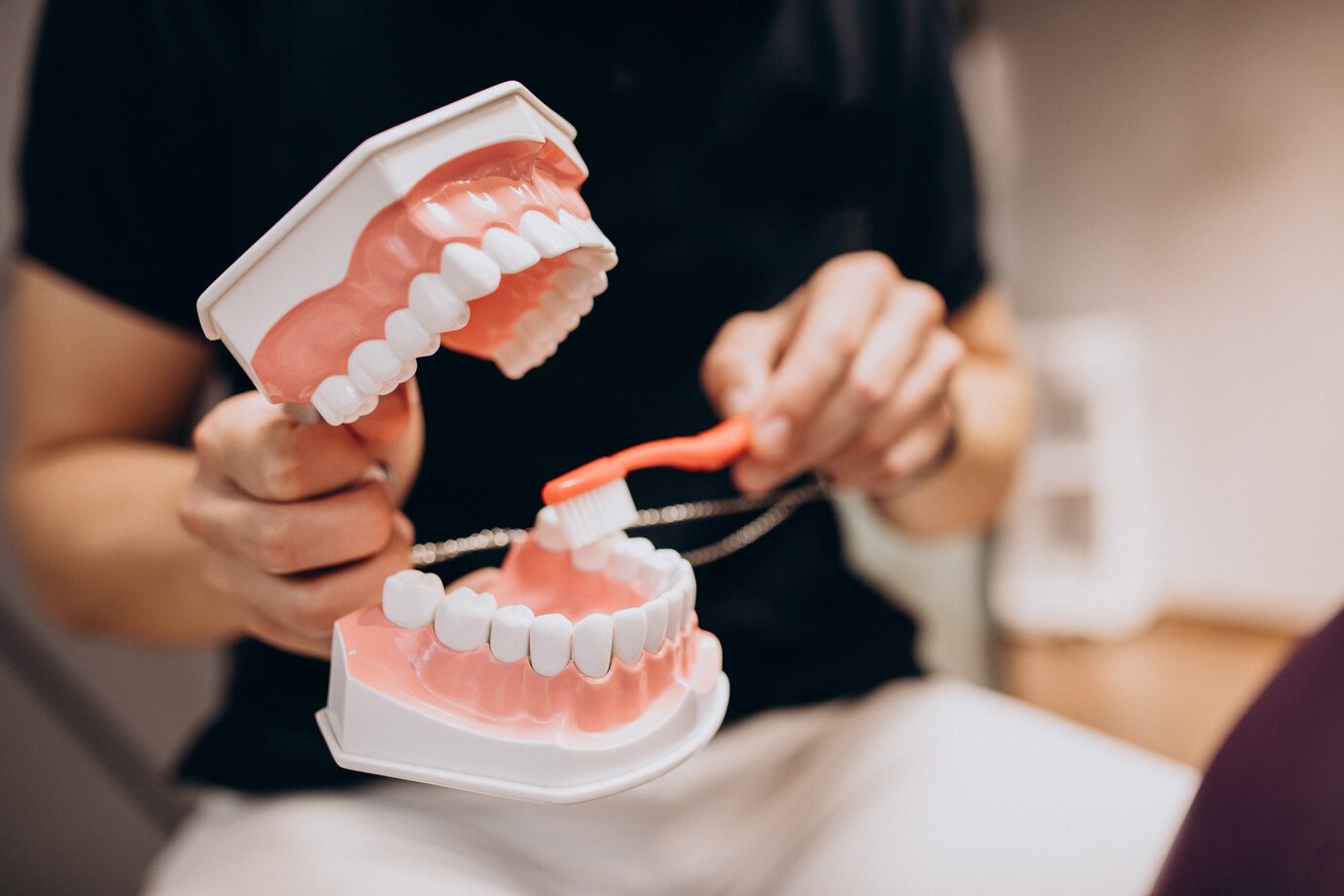Oral health plays a vital role in maintaining a good quality of life. Two commonly discussed terms in this context are dental plaque and tartar. While both relate to oral hygiene, they differ significantly. Let’s take a closer look at both conditions.
What Is Dental Plaque?
Dental plaque is a sticky film made up of bacteria, food particles, and cellular debris that adheres to the surface of the teeth. If not cleaned regularly, plaque can harden into tartar.
Plaque can lead to issues such as cavities and gum inflammation. A study conducted by FKG UGM student Pebby Amanda, under the supervision of drg. Indah Titien S., S.U., Sp. KGA(K) , revealed that toothpaste containing red onion extract (Allium cepa L) can reduce plaque accumulation in children aged 12–14. This highlights the importance of oral hygiene and using effective products to control plaque buildup.
How to Remove Dental Plaque:
- Brush your teeth twice a day.
- Use dental floss to clean between your teeth.
- Use mouthwash to reduce bacteria in the mouth.
What is Tartar?
Tartar, or calculus, is plaque that has hardened and strongly adhered to the teeth. This occurs when plaque remains on the teeth for over 24 hours, allowing minerals in saliva to deposit and solidify it—making it difficult to remove through brushing alone.
Tartar can irritate the gums and contribute to gum disease if left untreated.
How to Remove Tartar:
- Visit the dentist regularly for professional cleanings.
- Use dental care products containing fluoride to strengthen tooth enamel.
***
While both are results of poor oral hygiene, plaque and tartar differ fundamentally. Plaque is a sticky film that can be easily removed through regular brushing, whereas tartar is hardened plaque that requires professional treatment. Maintaining oral health through proper brushing habits and regular dental check-ups is essential to prevent these conditions and to keep teeth and gums healthy.
Understanding the difference between plaque and tartar can help us care for our oral health more effectively.
References
Pebby Amanda, Dr. drg. Indah Titien S., S.U., Sp. KGA (K), The Effect of 5% Red Onion (Allium Cepa L) Extract Toothpaste on Plaque Accumulation in Children Aged 12–14 Years https://etd.repository.ugm.ac.id/penelitian/detail/93185
Author: Rizky B. Hendrawan | Photo: Freepik

